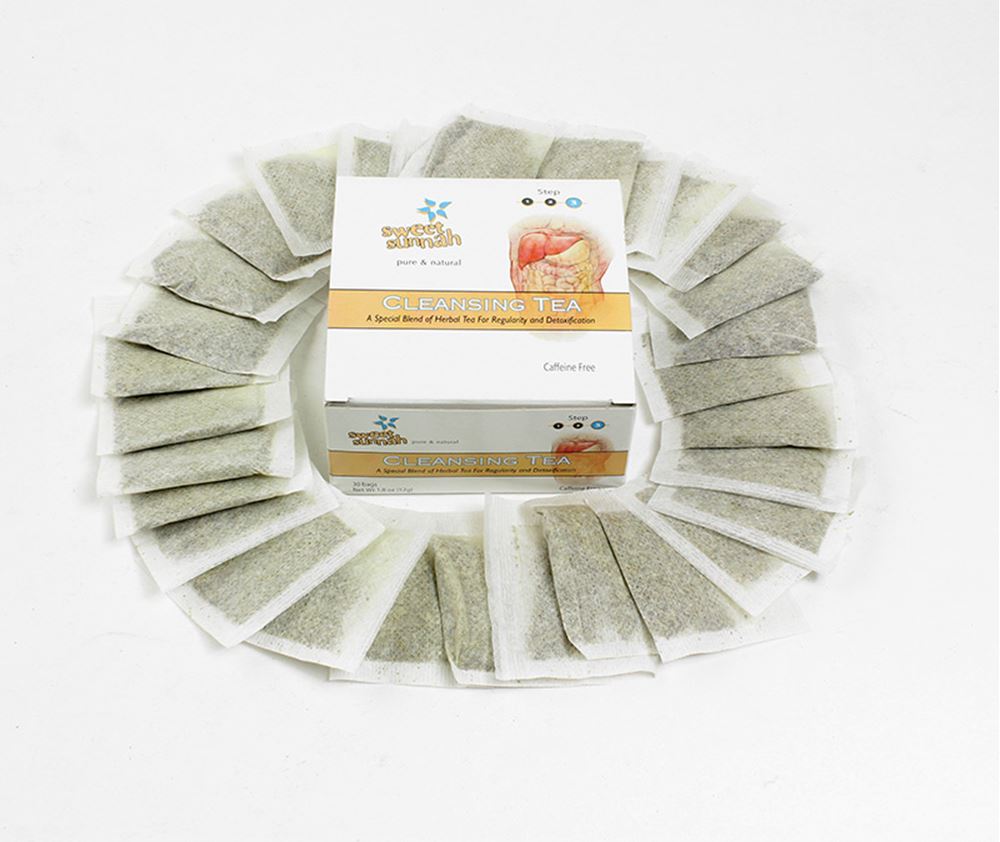What is tea? Tea is an amazing beverage normally prepared by boiling water or pouring water over cured leaves known as Camellia Sensis. This bush was originally found in Asia. Tea is the most popular drink in the world outside of water. Where did tea originate? Tea originated in Southwest China. In China, they used it as medicine. Also, it was used for recreation.
Top Benefits Of Tea
1. Tea strengthens your immune defenses. You may want to drink a cup of tea the next time a cold is going around your office. A recent study compared the immune activity in coffee drinkers to that of tea drinkers and found it to be much higher (up to five times) in those that chose tea. While it’s no guarantee against a cold, it sure couldn’t hurt.
2. Tea protects against cancer. While the exact types of cancer tea protects against are debated, recent research has suggested that lung, prostate and breast cancer see the biggest drop when green tea is consumed regularly. Again, there is no surefire way to prevent getting cancer, but having a cup of tea a day may is definitely worth the preventative benefits.
3. Tea can help prevent arthritis. Research suggests that older women who are tea drinkers are 60 percent less likely to develop rheumatoid arthritis than those who do not drink tea. The same effect has not been measured in older males, however, but additional studies may prove otherwise.
4. Tea can help fight the flu. Black tea may bolster your efforts to fight the flu as participants in a study who gargled with a black tea extract solution twice daily where more immune to the flu virus than those who didn’t.
5. Tea helps fight infection. Tea contains chemicals called alkylamine antigens which act similarly to some tumor cells and bacteria, boosting the body’s immune response. It has even been shown to have an effect on severe infections like sepsis.
6. Tea may reduce the risk of Parkinson’s Disease. New studies are suggesting that regular tea consumption may help protect the body from developing this neurological disorder.
7. Tea can prevent food poisoning. Catechin, one of the bitter ingredients found in green tea has been shown to effectively kill the bacteria which cause food poisoning and minimize the effects of the toxins that are produced by those bacteria.
8. Tea can lead to the inhibition of HIV. New research from the Journal of Allergy and Clinical Immunology has found that a substance found in green tea may inhibit theHIV virus from binding and can be a healthy part of a suppression regiment.
9. Tea may help prevent diabetes. There is some evidence to suggest that green tea helps lower the risk of getting Type 2 Diabetes, though future research is needed to confirm the association.
10. Tea can lower blood sugar. Tea contains catechin and polysaccharides which have been demonstrated to have a noticeable effect on lowering blood sugar.
11. Tea can prevent iron damage. Those suffering from iron disorders like haemochromatosis may be helped by drinking tea, which contains tannins that limit the amount of iron the body can absorb.
12. Tea can help with nasal decongestion. If you’ve got a bit of a cold, drinking black tea with lemon may help clear up some of the congestion that’s bothering you. Just make sure your body doesn’t become dependent on the treatment.
13. Tea may reduce your risk of heart attack and stroke. Tea helps to prevent the formation of dangerous blood clots which are very often the cause of heart attacks and strokes. Some studies have even found that black tea drinkers were at a 70 percent lower risk of having a fatal heart attack.
14. Tea protects your bones. You don’t have to put milk in your tea for it to help out your bones. Studies have shown that regular tea drinkers have stronger bones than those of non tea drinkers, even when other variables were adjusted for. Scientists have theorized it may be a benefit of the phytochemicals in tea.
15. Tea may protect against heart disease. While more studies are needed for conclusive evidence, it has been suggested that regular consumption of green and black tea leads to a significant reduction in the risk of heart disease related heart attacks.
16. Tea can help lower cholesterol.A recent study in China has shown that the combination of a low-fat diet and tea produced on average a 16% drop in bad cholesterol over 12 weeks when compared to a control group simply on a low-fat diet. If you’re struggling to get your cholesterol under control, try adding tea to your diet to see if it helps.
17. Tea can help lower blood pressure. Drinking only half a cup of green or oolong tea a day could reduce your risk of high blood pressure by up to 50% and those that drink more can even further reduce their risk, even if they have additional risk factors.
18. Tea aids in digestion. Tea has been used in China for thousands of years as an after-meal digestive aid and it can help you as well due to the high levels of tannins it contains.
19. Tea helps inhibit intestinal inflammation. The polyphenols in green tea have been shown to have an effect on the intestinal inflammation caused by conditions likeIrritable Bowel Syndrome allowing sufferers more comfort from a natural remedy.
20. Tea can reduce stomach cramps. Properties of red tea cause it to acts as anti-spasmodic agent and allowing it to aid in the relief of stomach cramps or even colic in infants.
Popular Types Of Tea
- Oolong tea: In an animal study, those given antioxidants from oolong tea were found to have lower badcholesterol levels. One variety of oolong, Wuyi, is heavily marketed as a weight loss supplement, but science hasn’t backed the claims.
- Pu-erh tea: Made from fermented and aged leaves. Considered a black tea, its leaves are pressed into cakes. One animal study showed that animals given pu-erh had less weight gain and reduced LDL cholesterol.
- Green tea: Made with steamed tea leaves, it has a high concentration of EGCG and has been widely studied. Green tea’s antioxidants may interfere with the growth of bladder, breast, lung, stomach, pancreatic, and colorectal cancers; prevent clogging of the arteries, burn fat, counteract oxidative stress on the brain, reduce risk of neurological disorders like Alzheimer’s and Parkinson’s diseases, reduce risk of stroke, and improve cholesterol levels.
- Black tea: Made with fermented tea leaves, black tea has the highest caffeine content and forms the basis for flavored teas like chai, along with some instant teas. Studies have shown that black tea may protect lungs from damage caused by exposure to cigarette smoke. It also may reduce the risk of stroke.
- White tea: Uncured and unfermented. One study showed that white tea has the most potent anticancer properties compared to more processed teas.
Additional Health Benefits Of Tea
- Improves dental health
- Mental alertness (via caffeine)
- Lowers blood pressure
- Reduces stress
- Helps increase/maintain bone density
- Improves digestion
- Hydrating to the body (in spite of the caffeine)
- Reduces risk of heart attacks
- Antioxidants help prevent a large amount of cancers -(skin, breast, colon, oral, prostate, ovarian, liver, lung, esophagus, pancreas, small intestine, stomach)
- Fights free radicals
- Provides mild protection from UV rays
- Weight loss
- Counteracts some of the effects of smoking and second- hand smoke
- Has some mild effect on people recovering from exposure to radiation
- Combats neurological diseases
- Lowers the risk of Parkinson’s disease
- Relieves constipation
- Promotes a good night’s sleep (when caffeine free)
- Lowers cholesterol
- Good for a body’s natural fluid balance
- Reduces diabetes suffering
- Promotes healthy skin
- Soothes stomach cramps
- Anti-inflammatory
- Anti-bacterial
Potential Side Effects Of Tea
Skeletal Fluorosis
Drinking too much tea may lead to skeletal fluorosis, a painful condition in your bones, according to “The New England Journal of Medicine.”
Difficulty Withdrawing
If you make caffeinated tea a part of your daily routine and eventually find yourself needing a cup or two to get through your day, you’ve likely developed a dependence on the stimulant. Upon lowering your caffeine intake or stopping altogether, it’s possible that you might experience withdrawal symptoms, including trouble concentrating, headaches and excessive fatigue. The side effects of caffeine withdrawal are serious enough that Johns Hopkins Medicine considers the issue a mental disorder.
Disruption of Sleep
Caffeine can have a mild diuretic effect, but typically only if you have 5 to 8 cups of tea after you haven’t had tea for a long period of time. In general, tea isn’t a diuretic if you drink it moderately. Although you might know to skip the caffeinated tea before bed in favor of a type of tea that doesn’t contain caffeine, the fluid intake before bed might cause you to have to urinate during the night. Although this side effect of the beverage is mild, it could lead to sleep disruptions and subsequent fatigue.
Potential Side Effects Of To Much Caffeine In Tea
High amounts caffeine in tea can have side effects. These side effects can range from mild to serious and include headache, nervousness, sleep problems, vomiting, diarrhea, irritability, irregular heartbeat, tremor, heartburn, dizziness, ringing in the ears, convulsions, and confusion.

